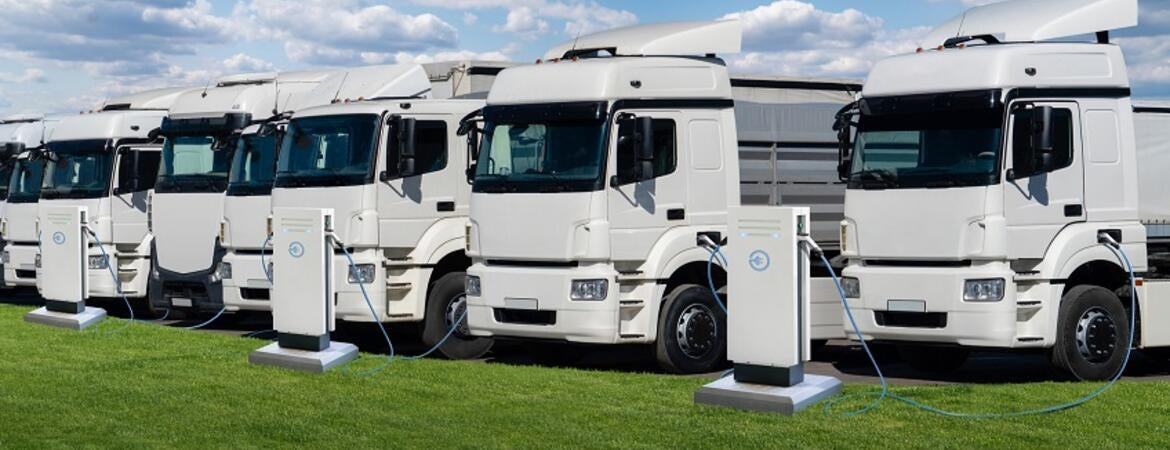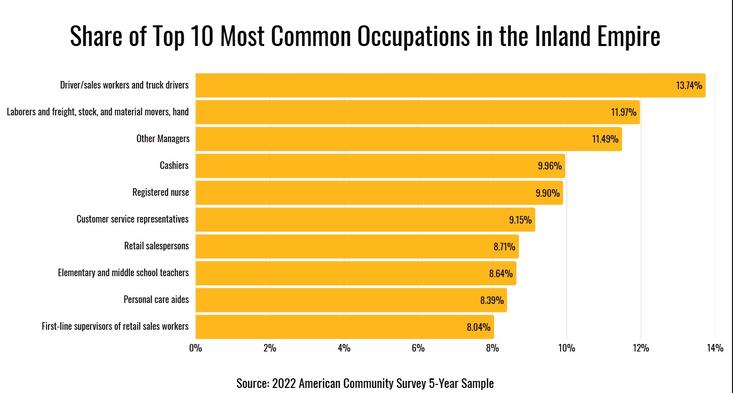
Today at the State of Workers in the Inland Empire report release, UC Riverside investigators presented recent statistics on labor market demographics, wages, cost of living, and worker training needs to adapt to changing conditions and emerging technologies such as electric vehicles, or EVs.
One report drew primarily on five-year samples from the American Community Survey over a decade to assess the effects of economic changes for workers and households. The second report integrated policy analysis, workshop proceedings, co-authors’ previous research, and original interviews with stakeholders to investigate the transition to EVs in the IE freight logistics hub, one of the largest in the U.S.
"Low-wage workers in California's counties of Riverside and San Bernardino have seen wage increases due to rising minimum wages and labor shortages," said David Mickey-Pabello, research director at UCR’s Inland Empire Labor and Community Center, or IELCC, created in 2023. "However, ongoing changes such as automation and remote work tell us that the region needs investments in education, retraining, and job pipelines to keep workers and industries competitive."
The fastest-growing industries, such as logistics, warehousing, retail, and public sector employment, offer fewer middle-wage opportunities, and despite a narrowing of wage inequality between the top and bottom earners, other trends persist. The income gap between middle-and high-income workers remains entrenched and Black and Latino workers earn significantly less than their white and Asian counterparts.
The report indicates that changing economics are disproportionately increasing housing costs for renters whose incomes remain more than $20,000 lower than homeowners. Renters spend nearly 30% of their income on housing—at the threshold for affordability.
The second report focuses on workforce development strategies during the transition to EVs or Zero Emission Vehicles. Given the IE’s vital role as a transportation hub, preparing workers for this transition will help ensure improvements in regional air quality as well as labor market outcomes. Specifically, the report found, initiatives to electrify medium-duty and heavy-duty trucks should combine high environmental standards with principles of equity and good labor standards.
“Workers now in transportation and shipping are not prepared to serve the shifting employment needs nor respond to the changing requirements for EV vehicles,” said Ellen Reese, UCR professor in the Department of Society, Environment, and Health Equity, chair of Labor Studies, and co-director of the IELCC. “Workers, businesses, and workforce development organizations need to work together to carry out training and education, and create pathways to good jobs to keep up with change.”
Among the report’s key recommendations is linkage between public EV-related funding and subsidies and requirements for living wages, benefits, local hiring, apprentice programs, and safety protections. Reese and her co-authors recommend the expansion of programs aligned with the core principles of California’s High Road Training Partnerships, or HRTPs, state-supported, industry-driven workforce programs that prioritize job quality, worker voice, and economic equity. Official HRTPs have specific criteria set by the California Workforce Development Board.
The report also addresses how creating HRTP-aligned training initiatives could leverage community workforce agreements , also known as project labor agreements, and community benefit agreements, legally binding agreements between community and/or labor organizations, employers, and policy makers.
“Another strategy would establish government procurement policies that include high labor standards for EV infrastructure projects,” said Reese. “Policy planning for EV production, logistics, lithium battery extraction, and grid expansion also needs to address the human factor, including integrating gender, racial, and immigrant equity principles into workforce development.”
The reports were announced on June 10 during an event held at the Teamsters 1932 Training Center in San Bernardino.
Both studies were funded by the James Irvine Foundation and the University of California Workers Rights Policy Initiative. The EV report also benefitted from an internal faculty award from UCR-OASIS, now constructing the SoCal OASIS™ Park for research in climate change, air quality and mobility.




